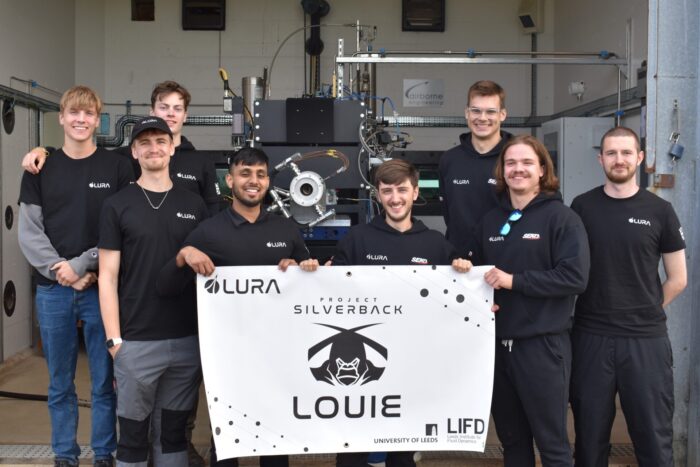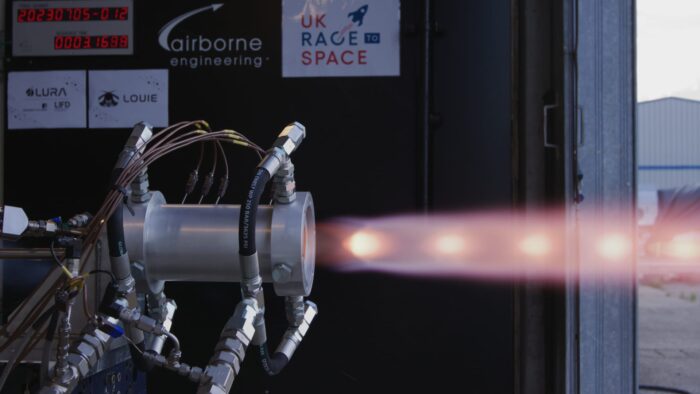LURA Liquid Engine Success
Leeds Institute of Fluid Dynamics sponsored this recent successful project, read all about it below.
Written by Dominykas Buta
On the 5th of July, at the Race to Space National Propulsion Competition at Westcott, a team of students from the Leeds University Rocketry Association (LURA) successfully conducted the hot-fire test of their first-ever liquid rocket engine.
As with all projects at LURA, they undertook a big challenge this year. Designing, building, and testing an entire liquid bi-propellant engine is no mean feat. However, the team fearlessly embraced the challenge and in less than a year became the fourth UK university team to ever achieve a successful firing of a liquid rocket engine. Even more crazy is the fact that the components arrived less than 24 hours before the competition, and fortunately fit together the first time!

On the day of testing, the team performed a series of preliminary tests, starting with static pressure tests of the water-cooling system, followed by a few tests to tune the correct coolant mass flows, and then some cold flow tests to find the correct oxidiser flow rates and pressures, and finally a series of hot fires.
Throughout the remainder of the day, the team had some trouble getting the combustion stable enough to reach a steady state. However, the technicians at Airborne Engineering granted a 30-minute extension and quickly dialled in anticipated oxygen-fuel mixture and ignition sequence. Finally, with only a few minutes left on the clock, the engine ignited and a full-duration, 6-second burn, was successfully performed.
After all the testing the engine remained in an impeccable condition, ready for further testing and improvement. With the engine's exceptional performance and an abundance of data to analyse, the team eagerly anticipates further advancements in their project. Next for LURA – building Gryphon II rocket to break UKRA Amateur Rocketry Altitude Record from UK soil.

